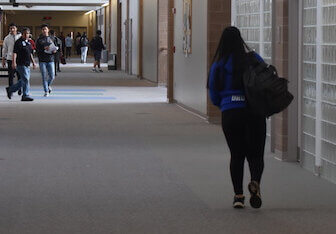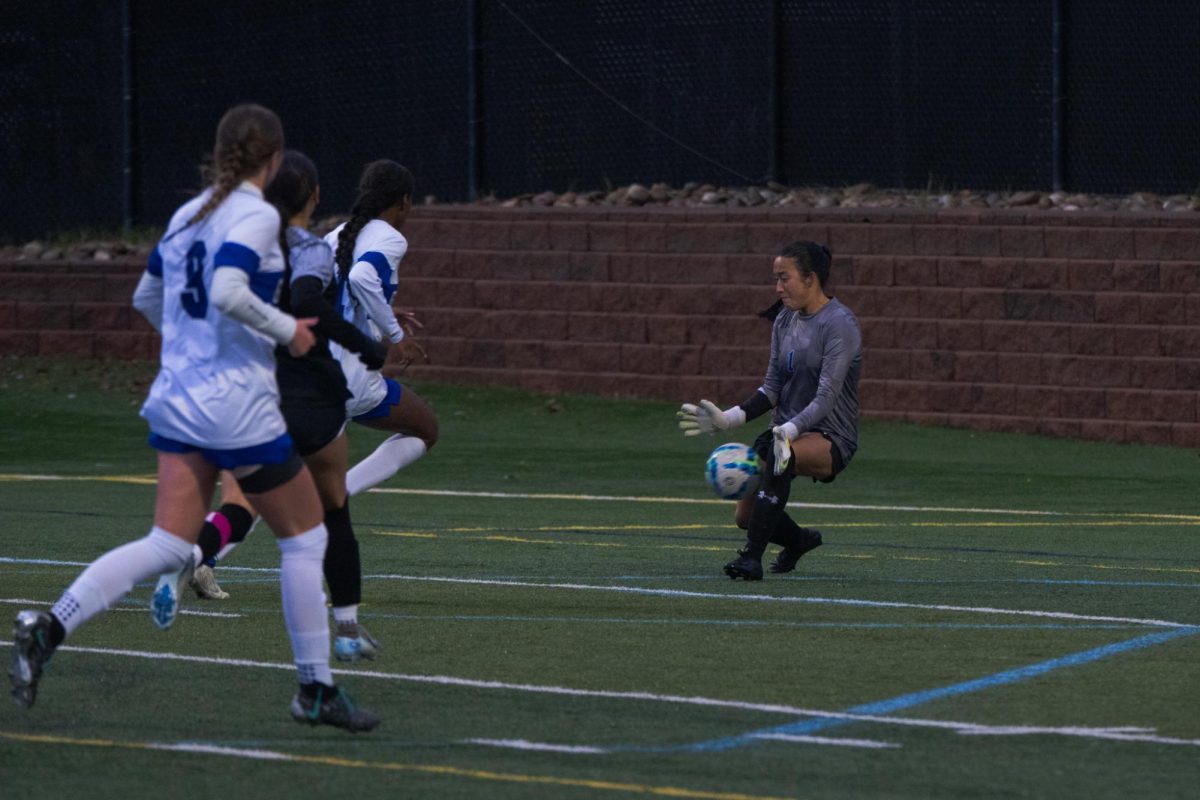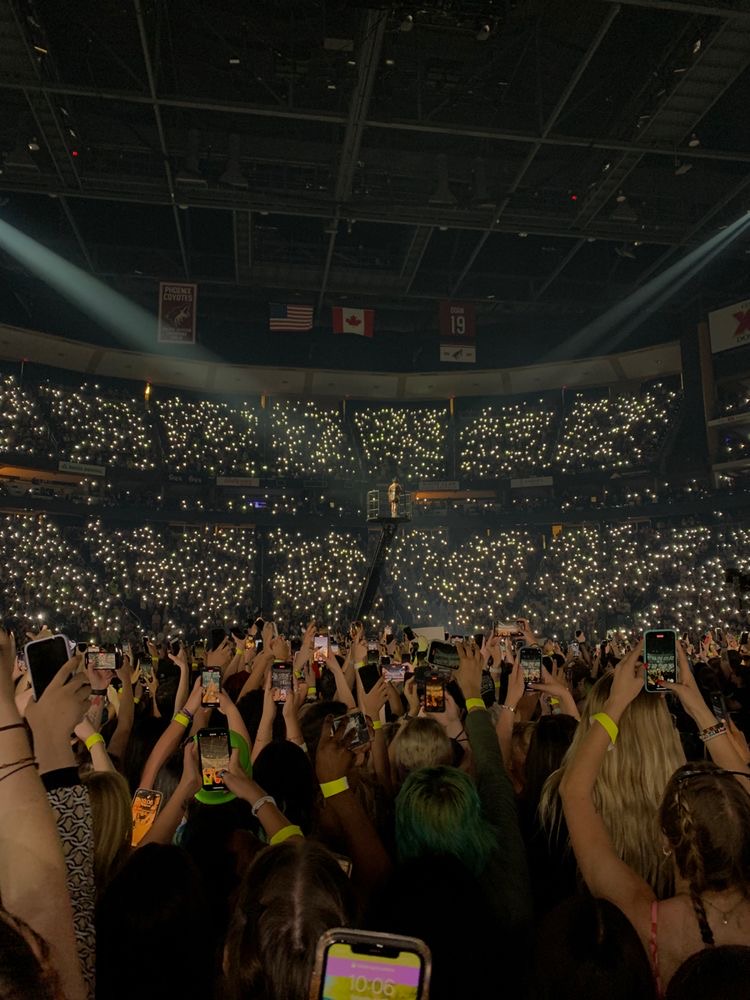Has Snapchat, Instagram, and Twitter made us care too much about what others think of us?
Grandview’s school psychologist Dr. Eric Zimmerman theorizes that our hypersensitivity to judgement is a product of social media.
“It’s an age thing,” said Zimmerman. “Kids are so narcissistic. They’re so involved in themselves, worried about how they look and who they’re with.”
When we look at pictures, namely selfies or other photos of people, we instantly form an opinion: if they’re hot, ugly, fat, skinny, etc.
“Because of social media,YouTube and Facebook, we’re all about ‘look at me, look at me, look at me.’”
We say that we don’t care about the opinions of others; online at least.
But, in reality, or the hallways, if someone were to call you ugly, you can’t hide behind a computer screen. The world is all too ready and waiting to see vulnerability from your facial expressions.
In the hallways they’re focused on each other.
“In the hallways they’re focused on each other,” said Zimmerman.
During passing period, the hallways are crammed with teenagers trying to get to their next class.
We squirm to avoid accidental eye contact by pretending to be on their phones.
 “‘Oh they’re looking at me; they’re making a judgement about me.’ We’re trained to think that way,” said Zimmerman.
“‘Oh they’re looking at me; they’re making a judgement about me.’ We’re trained to think that way,” said Zimmerman.
We are so absorbed with the act of being absorbed by our phone, that we don’t see the steel pillar; we walk into it with the painful reminder from our throbbing foreheads that walking and texting has little difference from texting and driving.
We go unnecessarily out of the way to prevent contact of a stranger. We twist and contort our bodies and gait into unnatural and bizarre movements that only occur if one manipulated a Barbie with the intention of snapping one of its limbs, that surprises not only passersby but ourselves.
No matter how much we try to convince ourselves that we’re indifferent, and that we don’t care what others think, we do. But this isn’t a sign of weakness. It’s our biology.
“That’s just how the brain at that age operates.”








![Baseball Defeats Smoky Hill 11-3 on Senior Night [PHOTO GALLERY]](https://ghschronicle.com/wp-content/uploads/2025/05/Chau_BSB_Smoky-Hill-022-1200x800.jpg)
![Executive Order: Ending Radical Indoctrination in K-12 Schooling [OPINION]](https://ghschronicle.com/wp-content/uploads/2025/04/Screenshot-2025-04-23-at-2.51.41 PM-1200x674.png)






Brad A • Jan 26, 2019 at 3:52 pm
“We are so absorbed with the act of being absorbed by our phone, that we don’t see the steel pillar; we walk into it with the painful reminder from our throbbing foreheads that walking and texting has little difference from texting and driving.”
Okay but what does this very redundant statement have to do with anything?
Carson Shoemaker • Mar 8, 2018 at 9:40 am
I do believe social media plays a major role in this, but I believe that a major point has been missed here. Teenagers are surging with hormones that cause them to have mood swings, and anxiety. Without social media, these problems would still exist. In the days before the internet, teenagers were still self conscious and judgemental. Seriously, ask literally anyone who grew up before the internet was widely available. There will always be a bully, or someone to make you feel bad about yourself, that’s (unfortunately) how the world works. Even though personally I don’t use social media, I believe that people are blowing the bad sides of it out of proportion. If anything, it should allow for more people to connect with each other. So when someone judges you in the hall, keep in mind that it’s just because that’s something that teenagers do.
Lain Iwakura • Mar 11, 2018 at 12:23 am
“I don’t use social media” Carson don’t lie i have you friended on Discord
But yeah, I mostly agree. I don’t think that the judgement is necessarily a result of being a teenager so much as a fundamental part of human nature, or at least a result of living conditions being less than ideal for a given individual resulting in them becoming “bad people,” both of which are nearly impossible to change; most of the jerks who I encounter in The Wired are adults. But that aside, yeah, a lot of traditional adults tend to ignore the positive effects of social media and fabricate issues about it because people in general don’t like things they don’t feel like they are a part of, which sucks, because kids are reluctant to let adults into their Wired lives because they fear punishment from authorities for acting in a way that is too “socially unacceptable” by the standards of pre-Wired society, which is kind of a self-perpetuating issue because if adults don’t get into Wired culture they won’t ever understand how standard human interaction has changed as a result of it, but if they are let in, they will be mad/weirded out and leave before they get to really understand it.
Lain Iwakura • Feb 21, 2018 at 1:38 pm
So, because we’re constantly voluntarily putting ourselves in a position to be judged by others online, we’re scared of being judged by others in real life? Why? In my case at least, if anything, the Internet has helped me grow MUCH thicker skin than I had previously. If you ever venture beyond your immediate group of friends on the Internet, EVERYTHING you say will make someone mad. No mater what, expressing opinions in places like YouTube comment sections or popular subreddits or wherever else your thoughts are going to be exposed to a large number of people will almost certainly result in someone harshly and mean-spiritedly criticizing you.
I’m not really sure what you mean to imply by saying that the computer lets us hide our actual feelings on a mater. It’s true, but I don’t think that that would alter how we would react in real life when that wall is gone. Again, if anything, the people on the Internet are drastically more judgmental in than real life, and while I guess that might lead to paranoia about being judged in reality in some people, most people grow thicker skin as a result of being judged, and even among those who do let jerks on the Internet get to them would be just relieved by knowing that in real life it’s much less likely that someone would even notice and judge them in the first place (given that online everybody’s thoughts are given equal viability to everyone, whereas in real life you won’t be able to see anyone’s thoughts unless you explicitly go out of your way to listen to them), much less express that in a way that you would ever be able to find out about.
So I don’t know. Maybe the people who are naturally anxious and paranoid anyway would feel this way, but the Internet being the judgmental nightmare that it is seems like it would reduce IRL social anxiety, not increase it.